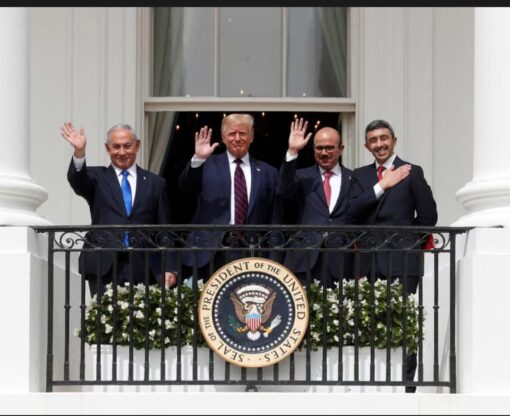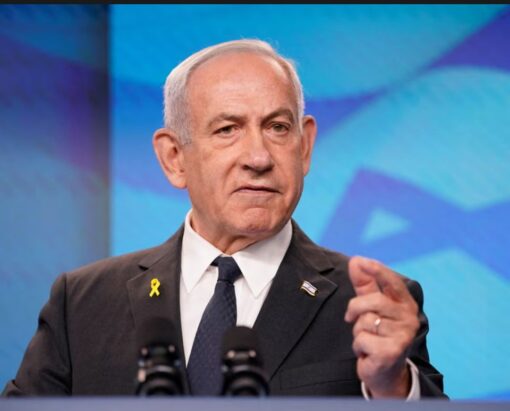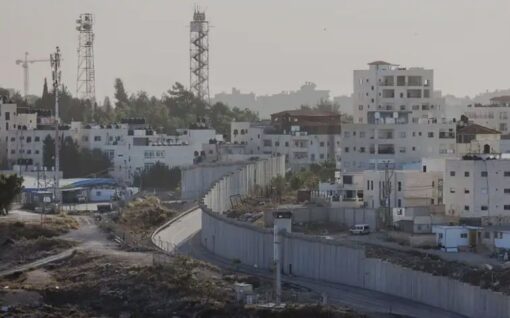Israeli Prime Minister Benjamin Netanyahu may face increasing difficulty finding a response that matches the political and rhetorical pressure surrounding recent moves to recognise Palestine.
Diplomats and analysts suggest that Netanyahu’s government is under intense scrutiny, both domestically and internationally, as nations signal support for Palestinian statehood and urge Israel to adjust its policies.
“The world is watching Israel closely,” one foreign policy analyst said. “Every statement Netanyahu makes on Palestine recognition is being weighed against international expectations and the reactions of neighboring countries.”
Netanyahu’s challenge is compounded by his own rhetoric, which has often emphasized a hardline stance against Palestinian recognition without direct negotiation.
“It is difficult for any leader to shift messaging without risking credibility at home and abroad,” said a former Israeli diplomat. Recent statements by European and Middle Eastern governments recognizing Palestinian statehood have put Israel in a delicate position, forcing Netanyahu to balance security concerns with diplomatic realities.
Within Israel, political factions are divided over how to respond. Hardline ministers argue that any concession would weaken the nation’s negotiating position and embolden opponents.
Conversely, more moderate voices caution that failing to engage diplomatically could isolate Israel internationally and damage its long-term strategic interests. “We need to be careful,” a senior minister remarked. “Our rhetoric must be firm, but we cannot ignore the growing international support for Palestinian recognition.”

On the ground, Palestinian leaders have welcomed recognition efforts, while warning that continued Israeli inaction risks escalating tensions.
A senior Palestinian official said, “Recognition of Palestine by countries around the world demonstrates our legitimate claim. Netanyahu must decide whether he will engage constructively or continue policies that ignore international consensus.”
Such statements have intensified media scrutiny and public debate in Israel, adding to Netanyahu’s challenge of crafting a response that resonates with both domestic supporters and the international community.
International observers note that the recognition of Palestine is gaining momentum in various regions, putting Israel on the defensive.
Countries in Europe and Latin America have recently signaled formal support for Palestinian sovereignty, prompting urgent discussions within the Israeli government.
“The recognition trend cannot be ignored,” said a Middle East analyst. “Netanyahu faces a balancing act: projecting strength while navigating the realities of changing diplomatic norms.”
The Israeli leader has historically relied on assertive rhetoric and strategic alliances to maintain his position, yet the growing international recognition of Palestine presents a scenario where words alone may be insufficient.
Officials close to Netanyahu indicate that the government is exploring multiple diplomatic channels to mitigate fallout, including private negotiations with key allies. “We are working behind the scenes to ensure our security interests are protected while addressing the recognition issue,” said a senior government source.
Netanyahu’s struggle is further complicated by domestic political pressures. Opposition parties criticize him for both failing to prevent international recognition and for potentially overreacting to diplomatic challenges.
“Netanyahu is caught between maintaining his hardline image and responding to evolving geopolitical realities,” a political commentator said. “Every statement must be carefully measured, but delays and indecision carry risks of their own.”
The United States, a key ally of Israel, has expressed cautious support for Israel’s position while calling for dialogue and restraint.
Washington has not explicitly endorsed or rejected the recent recognitions but has urged all parties to seek constructive solutions. “The United States encourages negotiations and peaceful resolution,” a US State Department official said.
“Recognition decisions must be considered carefully, with full awareness of their regional implications.” Netanyahu’s government must weigh these signals carefully as it crafts a response that maintains US support while asserting Israeli sovereignty.
For Israeli citizens, the issue of Palestine recognition touches on both security concerns and national identity. Polls indicate a divided public opinion, with some advocating engagement and compromise, and others emphasizing a hardline approach.
Community leaders stress the importance of strategic communication, warning that overreaction or underreaction could inflame tensions.
“The public expects a measured, thoughtful response,” said an academic specializing in Israeli politics. “Netanyahu must ensure that his words align with both security imperatives and international expectations.”
Analysts highlight that timing is critical. Delayed responses could allow momentum to shift further in favor of Palestinian recognition, while hasty reactions could provoke diplomatic friction.
“Netanyahu must find a middle ground,” said a regional security expert. “He needs to assert Israel’s position without creating unnecessary conflict with allies or neighbors.”
The government is reportedly considering multiple scenarios, including reaffirming Israel’s commitment to security, proposing dialogue initiatives, and leveraging international partnerships to manage the fallout.
Meanwhile, Palestinian communities are observing Israel’s response closely. Social media and news coverage have amplified awareness of the recognition efforts, creating pressure on Israeli authorities to act decisively.
“Recognition of Palestine is more than symbolic,” a Palestinian activist said. “It validates our rights and strengthens our voice. Netanyahu’s next moves will be watched everywhere.” The heightened scrutiny adds another layer of complexity to Netanyahu’s already challenging position.
Regional players, including neighboring Arab states, have also voiced expectations for Israel to respond constructively. Diplomatic sources indicate that several governments have reached out to Israeli officials, urging measured reactions and advocating continued engagement.
“The recognition of Palestine is reshaping regional dynamics,” said a diplomat familiar with the discussions. “Netanyahu must navigate these developments carefully to maintain stability and credibility.”
International media have noted the difficulty of reconciling Netanyahu’s public statements with the shifting global consensus. Opinion pieces and analyses point to the tension between political posturing and practical diplomacy.
“Netanyahu’s rhetoric has historically emphasized sovereignty and security, but the wave of recognition creates a new reality,” an editorial in a European newspaper noted. “The challenge is not merely rhetorical; it is geopolitical and immediate.”
As Netanyahu weighs his options, the broader implications of recognition for the Israel-Palestine conflict are increasingly apparent. Analysts argue that every statement, every diplomatic move, and every delay carries consequences that could shape the trajectory of the region.

Netanyahu’s ability to respond effectively may determine Israel’s standing among allies, its relationship with Palestinian leaders, and the stability of broader Middle Eastern dynamics.
Observers agree that Netanyahu’s next steps will be closely scrutinized, both domestically and internationally. “The prime minister is at a crossroads,” said a policy analyst. “His response to Palestine recognition will define Israel’s diplomatic posture for months, perhaps years. This is a pivotal moment requiring careful judgment, strategic foresight, and an understanding of evolving global expectations.”
For the people of Israel and Palestine, the stakes are deeply personal. Families, communities, and political actors are watching closely as the region grapples with questions of sovereignty, legitimacy, and future coexistence.
Netanyahu’s challenge is not simply political; it is emblematic of the broader struggle over how nations engage with complex issues of recognition, rights, and international law.


